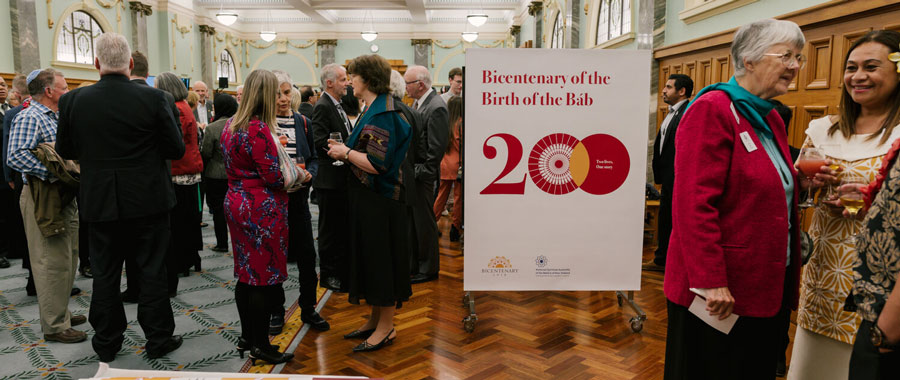The National Bicentenary Gatherings serve as a pivotal epoch in the Bahá’í calendar, commemorating the birth of Bahá’u’lláh, the founder of the Bahá’í Faith. These gatherings encapsulate the essence of Bahá’í teachings, emphasizing the significance of collective action in addressing pressing social themes. Through various forms of engagement, participants can expect a richly woven tapestry of discussions, reflections, and artistic expressions that shine a light on issues pertinent to humanity today.
At the forefront of the gathering’s agenda are discussions that revolve around social themes deeply ingrained in the Bahá’í teachings. This includes topics such as unity in diversity, the importance of gender equality, and the elimination of prejudice. The Bahá’í Faith champions the idea that humanity is a single race, and the gatherings provide an exceptional platform for attendees to delve into the implications of this doctrine. Through workshops and seminars, participants explore the mechanisms by which these ideals can be realized in contemporary society.
Moreover, the gatherings are not merely theoretical discussions; they are grounded in practical applications. Various presentations demonstrate how communities around the globe are embodying these principles. Through sharing case studies from diverse cultural contexts, attendees can glean insights into successful initiatives aimed at fostering harmony and understanding. These narratives serve as both inspiration and instructional models, illustrating the potential for grassroots movements to effect substantive social change.
Artistic expression plays an integral role in the National Bicentenary Gatherings. The Bahá’í teachings emphasize the power of art and culture in uniting hearts and minds. Participants can expect a series of performances, including music, poetry, and visual arts, that not only celebrate the occasion but also reflect on the social themes being highlighted. These artistic endeavors create an immersive atmosphere, allowing attendees to engage emotionally with the subject matter. Such experiences transcend linguistic barriers and reinforce the universal messages at the core of Bahá’í teachings.
Another crucial aspect of the gatherings involves youth engagement. Young Bahá’ís have the opportunity to voice their perspectives and actively participate in discussions. Their contributions are vital for creating a comprehensive understanding of contemporary issues that affect their generation. Interactive sessions are designed to encourage dialogue among youth participants, enabling them to explore their role in fostering social change. This inclusivity fortifies the community’s efforts to advance social progress.
In addition to lectures and workshops, the gatherings often feature panel discussions with esteemed scholars and thought leaders. These panels provide attendees with diverse viewpoints on complex social dilemmas, from economic injustice to environmental sustainability. Engaging with these distinguished individuals not only enriches the discourse but also empowers participants with knowledge that can be applied in their respective communities. The goal is to elucidate the intersections between Bahá’í teachings and contemporary societal issues, offering frameworks for understanding and action.
Networking opportunities abound at these gatherings, allowing participants to forge connections with like-minded individuals. The sense of community fostered during these events is palpable, as individuals share their aspirations, challenges, and insights. Such interactions cultivate a collaborative spirit, encouraging attendees to embark on collective endeavors that resonate with the principles of the Bahá’í Faith.
The National Bicentenary Gatherings also encompass service projects that enable participants to apply the teachings of the Faith in tangible ways. Engaging in community service not only addresses immediate needs but also embodies the Bahá’í principle of service to humanity. These initiatives highlight the importance of social responsibility, demonstrating how individuals and groups can contribute meaningfully to the welfare of society. The gatherings thus serve as a springboard for further community engagement post-event.
Furthermore, the gatherings invite participants to engage in reflective practices. Activities such as devotional gatherings and meditative sessions allow individuals to connect with their inner selves and the divine. These spiritual components reinforce the idea that social change is fundamentally linked to personal transformation. By nurturing their spiritual lives, participants are better equipped to effect change in their communities.
Given the global nature of the Bahá’í community, the National Bicentenary Gatherings are often attended by individuals from various cultural backgrounds. This diversity enriches the conversations and deepens the understanding of collective human experience. Engaging with different perspectives fosters an atmosphere of respect and learning, enhancing the unity that the Bahá’í teachings advocate.
In conclusion, the National Bicentenary Gatherings serve as a multifaceted exploration of Bahá’í teachings as they intersect with vital social themes. Through a blend of scholarly discourse, artistic expression, youth engagement, and community service, participants glean insights that not only honor the legacy of Bahá’u’lláh but also inspire actionable change. Each gathering is a testament to the belief that through unity and collaborative effort, humanity can address the challenges we face and move toward a brighter, more equitable future.
